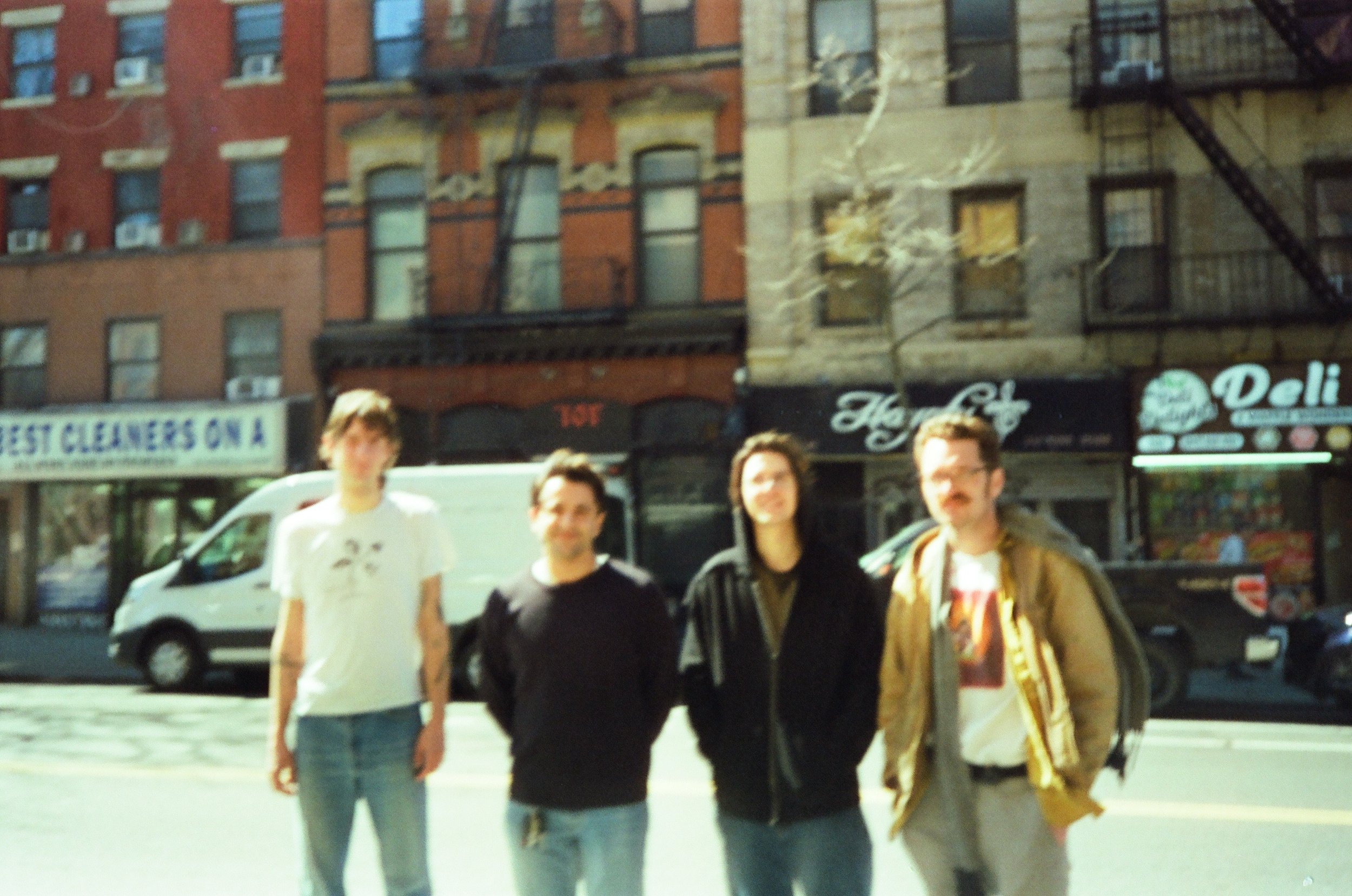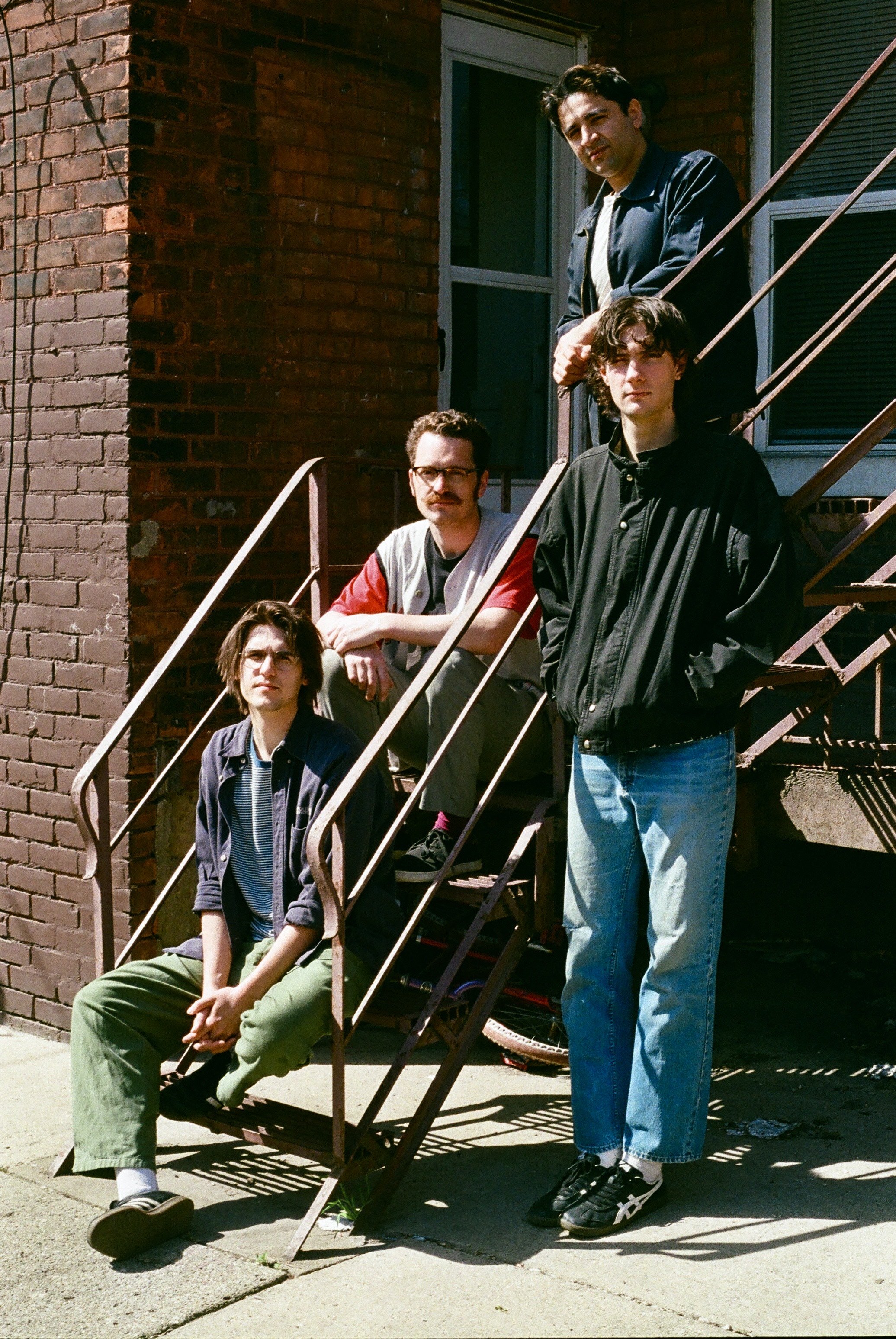A Band You Should Know: Zastava
Images courtesy of Zastava.
Detroit, Michigan - an under recognized, under appreciated American musical hub.
From the arguable birth of punk (was it Iggy or MC5? Was it The Ramones or Sex Pistols? Does anyone actually give a fuck where it started as long as we all agree that Iggy did it best?) to the completely inarguable and undeniable birth of techno music (this isn’t meant for you but you’re welcome, corporate girls who are too afraid to listen to try molly but still listen to Charli XCX).
Zastava is a music maker of motor city’s new generation worthy of knowing their names, which are Mateja Matic, Arman Bonislawski, Cam Frank, and Ollie Elkus. On a night out in the East Village, I caught their set and though I had heard the recordings and been a fan, I was struck by their live performance. I was captivated. Inspired, even. I felt like I wished I had learned to play guitar instead of earning an English degree. Their fervor and precision chaos applied to an on-stage presence that was both confident and scrutable, assembled yet dangerous, combined with songs that are genuinely danceable and undeniably alluring and specifically and emphatically not the same old half-hearted sadboy dogshit being chucked out by the flacid idiots who happened upon a pirate stream of the Meet Me in the Bathroom documentary their first year at NYU film school and who plague dozens of curated ‘hot new indie’ Spotify playlists, all in my view added up to one thing for Zastava: quality. Zastava had the room - it was completely theirs - and their music earned them the right to it.
This is a band that I must know. And so, with their record releasing in a matter of weeks, you ought to know, too.
How long have you been a band?
Mateja Matic: Four years? In various forms. Arman and I started playing music together in 2019. Pretty classic style of not having a drummer. Then Covid happened and we kind of stopped playing.
Arman Bonislawski: I think I ran into you at a show or something after that and asked if you wanted to play again.
MM: Arman had this practice space in Detroit at the time and was playing with a drummer, and I tagged along and brought another original member and we started in earnest.
Your album comes out on June 13th. Are you allowed to talk about that?
MM: Yeah, I mean, we are the only people involved with it.
Okay, I was wondering how your writing process may have changed between previous recordings and this new one coming up.
AB: I’m gonna be honest, when we started I was kind of infatuated with the idea of being a shoegaze band, and that’s what it was. The more we aged with the process of writing and adopted new members, the sound collectively kind of changed and it felt like more of a maturation of taste in a way. Part of it felt like the shoegaze market was very saturated.
MM: I think that with the shoegaze thing, it felt very copypaste with all of these other bands. I got tired of hearing it and making it. But the influences of these records, those are bands we’ve always loved. Sonic Youth and Unwound were always in conversation, it had just never come out before. This album feels like the first actual statement of the band.
That in mind, what was the process for writing like? Did you sit down and consciously write an album? Or like intentionally try to coerce yourself away from writing shoegaze?
MM: I think it just happened naturally. We’ve had a lot of lineup changes, Arman and I are the only two original members. It started out that there were three singers and three guitar players, and we’d all trade duty on bass. One of our members left to pursue his own music, and our current bass player, Cam, filled that spot and was an actual bass player. I personally came more into my own with doing vocals.
AB: I think that finding those roles really helped with the writing process. It brought a lot of stability.
MM: We wrote all of these songs in a room together. Someone might come in with most or all of the parts that they’d play, but we wrote the structures of the songs together.
AB: We approached each one trying to add some variety of sound to each song, but keeping a tonal beat.
MM: There was a really healthy friction. I think we happy medium-ed it.
People who collaborate should argue and have strong opinions.
AB: Song to song, time spent writing each one is so varied. One song, I had to revisit over the course of like six months to finish it, but another one we wrote it in like three days.
I really like your visual aesthetics, how did that develop?
MM: To be honest it’s a thing that is - not even in a cool guy mysterious way - it’s not thought out too much. I made the album art for this record, I tend to make most of our flyers. I’ll make something that looks cool and hope that it has some cohesion, and then throw it in the band groupchat and wait for the thumbs up. I like it when bands have a visual element. This is really common now because there’s no money to be made in music and everyone has to do a hundred jobs, but I like when the band works on the visuals, too, it feels like an extension of their art.
At the start of this call, you said that you’re the only ones involved with the record. What’re the challenges and success of self producing?
MM: I mean challenges: money up front.
AB: It always feels to me that you don’t have as long a leash to get stuff wrong. There’s less of a leeway to correct yourself. We paid for studio time, we have to get things right. It feels constricting in that sense, but it helps us to approach things with more intent.
MM: Another thing that I like about us doing this ourselves is that we’ve learned a lot. From start to finish, we know the process of making and releasing a record, from booking studio time to vinyl production. I had to resend the album art to the vinyl maker like six times because I kept doing it wrong somehow. But now we know.
AB: And the mental gymnastics of managing expectations in timelines, because you want things to move so fast and you want it to be out there. Even the vinyl stuff, the communication, you won’t hear back for a while and you just have to take it as it comes. It can be really frustrating.
MM: I very much agree with managing expectations as being important. There were so many things in this process where I just wanted it to be done quicker, but any time I was struggling with it, I thought about how many bands and labels had to do this shit themselves, and they all had to learn.
You have to know fucking everything. You’re from Detroit, that’s cool. Do you think that’s advantageous?
MM: That’s a conversation we have a lot.
AB: Cost of living wise, it allows us to go play shows out of town and sink money into other parts of this. But it does sometimes feel like the opportunities aren’t as there.
MM: We’re a skip over town. When cool bands go on tour, they have a date in Toronto, a day off, and a date in Chicago. They don’t play in Detroit.
What’s the scene there?
MM: Even in our early iteration of the band, we weren’t fitting in very well, but now I guess we are a little more in. The scene we know and are a part of feels like it’s in this restructuring period. For the last decade or so, it’s been really about garage rock and garage punk stuff. Everyone here loves The Oblivions and Ty Segall. That’s what people really give a fuck about here, and we are all cool and into that, but that was never the music that we wanted to make. Still to this day, some of the best live bands I’ve ever seen are our friends in Detroit. They’ve informed me on how I want our shows to go. It really just depends on your perspective. Sometimes I think it’s good that we are the only band around who are into these things, but then I look at the camaraderie of two bands who are similar and are close in a big group. We have to go a little bit alone, but whatever those are the cards we were dealt.
I mean, I love that you’re from Detroit. From House to Iggy, Detroit is a major music city.
MM: Detroit is the kind of city that we can talk shit about when we’re here, but when we were on tour, this guy was talking shit about Detroit and we were like, ‘you should stop talking.’
AB: Scenewise, when people go out to see music, it feels like friendly hangouts, and that’s great, but sometimes you want to draw from outside and not just the friends and family.
MM: It’s close, it’s just small.
What’s the goal here with the new album?
MM: Open whatever doors it could possibly open. We all do this because we feel the compulsive need to do it. I want to play music and make records because that’s what we care about. Hopefully we can play some cooler shows and more often.
AB: Money is never at the forefront; we are breaking even paying for gas on a tour, and that’s fine, I just want to play better shows. And it makes me want to personally do more, it’s definitely fueled the fire to want to do more.
MM: I feel, as a student of the game, this kind of responsibility to contribute anything I can. Not in some way where I’m going to write the next big noise rock album, I just want to have my version of what I care about out there, and if anyone’s into it, that’s really cool, but if not, we still made it because it’s what we felt we wanted to make.





